2013, January 9-11 - UE4SD SG kick off meeting and CA Conference
Something about the SG kick off meeting
2014 Annual Meeting
The Charles University Environment Center will host the 2014 UE4SD Annual General Meeting in Prague on Thursday, 2 October. The COPERNICUS Conference will follow the next day.
This will be the first time all 55 project partners will be assembled in one location, so it is a grand opportunity to discuss progress on the project to date, results of the mapping exercise, project management and administration, hear the perspectives of representatives from all four regional hubs, and discuss next project stages and potential involvement in the CA Conference.
2014 Prague meetings overview
Web of the Copernicus Alliance 2014 Annual Conference
The following table has been designed to help participants differentiate between the various meetings taking place in Prague 1-4 October.
Conference videos
Here you can find videos taken during Copernicus Alliance Conference 2014. You have to wait until videos are uploaded. Thank you for your patience.
UE4SD Regional Meeting West
The regional meeting for the UE4SD partners from the Western regional hub, including Austria, Belgium, France, Germany, the Netherlands and Switzerland, took place at Leuphana University of Lüneburg on 27-28 February 2014. The purpose of the meeting was to inform regional partners about project management and together discuss first project activities, such as the mapping of opportunities for university educators to develop ESD competences in the partner countries. We additionally discussed expectations, had the opportunity to get to know each other and exchange experiences on ESD and higher education.
UE4SD SG Meeting in Lüneburg
The steering group partners University of Gloucestershire, Autonomous University of Madrid, Charles University Prague and Leuphana University of Lüneburg, met on 3-4 February 2014 in Lüneburg to discuss project management requirements and the first project phase “Mapping the field”. A template for mapping the situation of ESD in higher education and ESD professional development opportunities for university educators in all UE4SD partner countries was finalised and the further mapping procedure was planned. Upcoming regional meetings and first ideas for the UE4SD annual meeting in Prague were discussed as well.
2015 Madrid events
The annual general project meeting and related events will be held in Madrid on November 23 - 25th, 2015. The events include UE4SD Annual Meeting, COPERNICUS Alliance Conference, and CA Annual general meeting. More information including registration forms please find on the separate pages.
COPERNICUS Alliance Conference, and CA Annual general meeting. More information including registration forms please find on the separate pages.
Accommodation in Madrid
Hotel rooms have been pre-reserved for the Annual Meeting and CA Conference in a number of hotels in Madrid ranging in price and location. For more information, please click on each of the hotels’ link.
Annual Meeting Programme
Updated on November 16, 2015
Monday, 23 November 2015, 9.00 – 18.00h
Cultural Center “La Corrala”-UAM, C/Carlos Arniches, 3 y 5, Madrid E-28005
Annual Meeting Venue

The Annual Meeting will take place at the only UAM building located in the city’s historic core of Madrid, The Corrala , in Carlos Arniches street, within the famous Rastro of Madrid. The Corrala is a traditional and popular building of the nineteenth- century. The Corralas received and gave shelter to many families who moved from the villages to the capital of Spain, searching for a better life. Most of these corralas were built near city factories.
COPERNICUS Alliance Conference 2015
COPERNICUS Alliance Conference will be held on 24 November 2015 in Madrid, Spain. More information please find on CA website.
This year COPERNICUS Alliance Conference will focus on evaluation and assessment of higher education for sustainable development.
Conference venue: CaixaForum Madrid - Paseo del Prado, 36, Madrid E-28014
Draft Programme COPERNICUS Alliance Conference 2015
November 24th 2015 at Caixa Forum, Madrid, Spain
08.30- 9.00 Registration
9.00 – 09:30 Welcome by Clemens Mader. President of the COPERNICUS Alliance
09.30 - 11.300 Partnerships to enable global and local learning for sustainability in Higher Education
- Mahesh Pradhan. Chief, Environmental Education and Training Unit Division of Environmental Policy at United Nations Environment Programme – The Global University Partnership for Environment and Sustainability
- Fernando Galvan. President of the CADEP / CRUE Commission& Rector of the University of Alcala de Henares
- Daniella Tilbury. University Educators for Sustainable Development (UE4SD) Project Lead
- Jana Dlouha. Vice-President of COPERNICUS Alliance
11:00 - 11.30 Coffe break
11.30 - 13.00 Keynotes & Panel Discussion: Sustainability Assessment of Higher Education Institutions.
- Aaron Benavot. Director Education for All Global Monitoring Report, UNESCO,
- Rodrigo Lozano. Author of different publications about Assessment for Sustainability in Universities.
- Rafael Van Grieken. Director The National Agency for Quality Assessment and Accreditation of Spain ANECA (To be confirmed)
13.00 - 14.00 Lunch
14:00 – 15:30 Open Space Workshop
15.30 – 17.30 Parallel Sessions
17.30 - 18.00 Coffee break
18.00 - 18.30 Summary of parallel sessions and Closing words.
- Javier Benayas del Alamo. Universitdad Autonoma de Madrid, ES
- Clemens Mader, COPERNICUS Alliance
Travel and Subsistence Costs
The EU project can fund 1 member from each partner institution to attend both the Annual Meeting and CA Conference (2 nights) in Spain. Partners have been allocated a budget for this meeting and are responsible for booking and pre-paying their travel and subsistence. The expenses from this trip as well as other project activities will be reimbursed to all partners after the next reporting period. Please bear in mind that the project will only fund 75% of the total costs. Partners need to source the remaining 25%.
UE4SD Annual Meeting
This will be the second time all 53 project partners will be assembled in one location. In the morning, we will discuss and launch a publication and online platform of resources that includes best practice, information and materials from across the UE4SD consortium. In the afternoon, we will present future plans and discuss in small groups key strategies to enhance the quality of the project and improve our dissemination and exploitation plans. Small group discussions and breakout sessions as well as interactive activities have been planned in order to provide opportunities for partners to meet and interact with each other.
Call for abstracts
We welcome contributions that can provide fresh perspectives and share innovative practice, and can respond to the core questions underpinning this conference:
- Q1. How can universities become beacons of change and good practice in ESD?
- Q2. What type of teaching approaches and professional skills are needed to enable university educators to develop ESD in their own organisations?
- Q3. How can we support university educators to develop professional competences in ESD?
- Q4. What are the connections between ESD, professional development and quality enhancement in higher education?
Please send us your abstracts of between 200-300 words as word attachments before 22nd May 2016 to: This email address is being protected from spambots. You need JavaScript enabled to view it.
Abstracts must include the following details:
- Title: no more than 15 words
- Authors: names for each author with surname first, presenting author underlined
- Institutional Affiliation: name of institution, agency or association
- Contact Details: email address and telephone number for the presenting author
There are limited spaces for presentation during the event. A selection of contributions will be made by the organisers and communicated to authors by the first week of June.
Conference abstracts
Sandoval Hamón Leyla Angélica; Bayas Aldaz Cecilia, Sánchez Fernández Flor, Rodríguez Pomeda Jesús, & Casani Fernández de Navarrete Fernando, Department of Business Organization, and Research Institute on Higher Education and Science (INAECU), Universidad Autónoma de Madrid. Spain. Department of Social Psychology and Methodology, and Research Institute on Higher Education and Science (INAECU), Universidad Autónoma de Madrid. Spain.
--
Shumba Overson, Kasali George, Namiluko Yaki & Choobe Beauty, The Copperbelt University, Kitwe, Zambia
--
El Zoghbi, Mona, Ph.D., Sulieman, Sulieman, Ph.D., UNESCO Regional Bureau-Beirut
--
Hands, Victoria, and Anderson, Richard, Kingston University London
--
Wlasak Julia, Regional Centre of Expertise on Education for Sustainable Development (RCE) Graz-Styria, University of Graz
--
Prat Jordi, Peix Estel, Gmelch Nadja, Gómez Màrius. Fundació Autònoma Solidària (FAS) & Associació Catalana d’Universitats Públiques (ACUP).
--
Claudia T. Schmitt; Alexander Bassen, Universität Hamburg, Germany, Center for a Sustainable University (KNU)
--
Thomas Skou Grindsted and Tue Hylby Linkquist Institutional Affiliation: RCE Denmark, Regional Center of Expertice on ESD
--
Kozova Maria, Pauditsova Eva, Comenius University in Bratislava, Faculty of Natural Sciences, Slovakia, Catholic University in Ruzomberok, Faculty of Education, Slovakia
--
Exploring social sustainability in urban studies
Yorghos Remvikos, Université de Versailles Saint Quentin en Yvelines (UVSQ), Observatoire de Versailles Saint-Quentin, laboratoire Culture-Environnement-Arctique-Représentations-Climat (CEARC)
--
Inspiring and supporting teachers for ESD
Katrien Monden, Ellen Vandenplas, Institutional Affiliation: Ecocampus, Government of Flanders, Belgium
--
Onaindia, Miren; Fernández de Manuel, Beatriz; Casado, Izaskun; Ametzaga, Ibone; Gamboa, Iñaki; Asua, Amaia; Garcia, Patxi; San Martín, Angelica; Méndez, Leire, UNESCO Chair on Sustainable Development and Environmental Education. University of the Basque Country. UPV/EHU. Barrio Sarriena s/n 48940 Leioa. Bizkaia. Spain, Bilbao City Council. Public Gardens and Parks Department, Bilbao City Council. Department of Environment, INGURUGELA. Department of Education, Basque Government
Excursions
We hope you will find this page useful in planning your next visit to Gibraltar. On Sunday or Wednesday there will be an opportunity to visit any of the touristic sited below:
Rock Tour + WWII Tunnels
Pick up: Hotels
Dates: Sunday 26, 2 pm / Wednesday 29, 10 am
Duration: 2hours 15 minutes
Fee: £23 pp
Standing at the crossroads between Europe and Africa and the Atlantic and the Mediterranean take advantage of Experiencing Gibraltar on a Rock Tour.
This unique trip around the Rock offers truly breath taking views and giving you the chance to see the interesting points of the town.
This tour include visits to:
- Europa Point: is the southernmost point of Gibraltar. Overlooking North Africa, the Bay of Gibraltar as well as our Spanish neighbours.
- Ape’s Den: where home is to Gibraltar’s famous Barbary macaques.
- St Michael’s Cave: contains a network of limestone caves located within the Upper Rock Nature Reserve with a height of well over 300 metres above sea level. . This cave has marked a distinct attraction for decades
Dolphin Safari
Pick-up: Gibraltar’s Marina Bay
Time: 12:00, 14:00 and 15:30
Duration: 2 hours
Fee: £15 pp
Gibraltar’s favourable Mediterranean Climate entices an enjoyable and educational dolphin-watching safari. Gibraltar has three regular wild species of dolphins that are to be seen around the coast of Gibraltar. Whales also migrate here to Gibraltar including the Blue whale known as the largest mammal of them all.
Other interesting places in Gibraltar
Gibraltar Museum
The Gibraltar Museum is located within the City of Gibraltar, minutes from the Roman Catholic Cathedral of St Mary the Crowned in Main Street and the Commonwealth Park, which should be jotted on your visit list during your stay. The Gibraltar Museum covers all aspects of our history.
Gibraltar Botanic Gardens
Gibraltar’s Main Street
Millions of tourists are attracted to this little rock known as Gibraltar whether it is for Sports, Business or simply leisure all will stroll through the commercial district, Main Street.
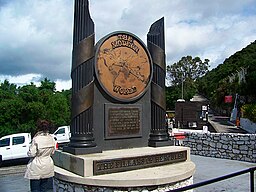


Pillars of Hercules St Michael’s Cave Great Siege Tunnels
Apes Den The Rock Cable Car
Beaches from the top of the Rock
Programme
Monday 27 June
9:00-15:00 UE4SD Annual Meeting - for UE4SD members only
16:30 Registration
17:00 Opening
The Hon. Fabian Picardo Chief Minister of Gibraltar
17:15 Welcome
- Prof. Daniella Tilbury, Vice-Chancellor of the University of Gibraltar
- UE4SD Steering Committee representative (TBA).
17:30 Panel - International and UN frameworks on ESD in Higher Education
Chair: His Excellency Lieutenant-General Edward Davis CB CBE, Governor and Commander-in-Chief
- Dr Alexander Leicht, Chief, Education for Sustainable Development, UNESCO Paris
- Adriana Valenzuela, Education, Training and Public Awareness, United Nations Framework Convention on Climate Change Secretariat UNCTAD
- Dr Fabrice Millet, Chief ASYCUDA Programme, United Nations Conference on Trade and Development
19:00 Overview of Conference Programme
Dr Ingrid Mulà, UE4SD Project Coordinator
19:15 Launch of the Online UE4SD Platform
- The Hon. Gilbert Licudi, Minister for Education, Justice and International Exchange of Information (TBC)
- Dr Alexander Leicht, Chief, Education for Sustainable Development, UNESCO Paris
20:00 Reception
Tuesday 28 June
9:30 Copernicus Alliance Keynote
Prof Heila Lotz-Sisitka, Murray & Roberts Chair of Environmental Education and Sustainability at Rhodes University, South Africa
10:15 Panel response to the keynote
Moderator: Dr Jana Dlouhá, COPERNICUS Alliance and Charles University Prague
- Prof Gerd Michelsen, Senior Professor, Leuphana University of Lüneburg
- Dr Alex Ryan, Director of Sustainability, University of Gloucestershire
- Prof Peter Corcoran, Professor of Environmental Studies and Education, Florida Gulf Coast University
- Prof Michael Scoullos, UNESCO Chair, University of Athens, Mediterranean Information Office for Environment, Culture and Sustainable Development (MIO-ECSDE)
11:00 Coffee break
11:30 Parallel sessions
Chair: Dr Maik Adomssent, Leuphana University of Lüneburg
Pathways for Quality and Partnerships
Chair: Dr Jana Dlouhá, COPERNICUS Alliance and Charles University Prague
Possibilities for Change
Chair: Dr Paula Lindroos, Uppsala University, Baltic University Programme
-
13:00 Lunch
14:30 Panel session: “Universities as beacons of change for sustainability”
Moderation: Dr Alex Ryan, University of Gloucestershire (UK)
- Prof Nick Foskett, Chair of Academic Board, University of Gibraltar and Former Vice-Chancellor of Keele University
- Dr Rodrigo Lozano, Subject Editor for the Journal of Cleaner Production and Assistant
- Professor at the University of Utrecht
- Prof Fernando Galván - President of the CRUE Sustainability Commission & Rector of the Universidad de Alcalá
16:00 Coffee break
16:30 UE4SD Higher Education Academy Experience
Convenor: Prof Javier Benayas, Universidad Autónoma de Madrid
Facilitators:
- Dr Mercè Junyent, Universitat Autònoma de Barcelona
- Leslie Collazo, Universitat de Girona
- Prof. José Gutiérrez, Universidad de Granada
- Aitxiber Zallo, Universidad del País Vasco (UPV/EHU)
18:30 Closing
Prof Daniella Tilbury, Vice-Chancellor of the University of Gibraltar and UE4SD Project Director - Words and Music
20:00 Conference Dinner
Wednesday 29 June
Excursions
Registration
The Conference is now open for registration. Don't miss this opportunity to join us at this higher education for sustainable development event. Early Bird registration closes 15 May 2016. Regular Priced registration closes on 10 June 2016.
To register for this event please acquire your tickets on the following website
|
Early Bird |
Regular Priced |
|
|
General |
£120 |
£150 |
|
Student/senior citizen |
£70 |
£90 |
|
UE4SD Steering Group Member |
Funded by project |
|
|
UE4SD Partner |
Funded by project |
|
Travel
By Air you can fly directly intoGibraltarairport via regular services from the following destinations:
London Heathrow UK by British Airways
London Gatwick UK by easyJet
London Luton UK by Monarch Airlines
Manchester UK by Monarch Airlines
Birmingham UK by Monarch Airlines
Bristol UK by easyJet
Tangier Morocco by Royal Air Maroc
Gibraltar is also easily accessed by those wishing to fly to Malaga or Jerez and both can be reached by road in approximately one hour and thirty minutes. Seville Airport is also accessible by car and is approximately two hours away. For further information on how to travel to Gibraltar from Malaga, Jerez or Seville please contact the Gibraltar Tourist Board.
By Sea via ferries from Tangiers into Gibraltar but more regular ferries come to Algeciras (20 mins away) and Tarifa (40 mins away) in Spain.
By Train, there are train stations within 30 minutes from Gibraltar, namely, San Roque- La Linea, Algeciras, and an AVE station in Malaga. For further information please visit www.renfe.es
Gibraltar is a United Kingdom overseas territory, as a result the same Schengen rules apply. Gibraltar is Non-Schengen territory, therefore, a valid passport or ID card will be required for EU citizens.
Check this website if you wish to compensate your CO2emissions: BOKU CO2 compensation project.
UE4SD Annual Meeting 2016
Monday, 27 June 2016, 9.00–15.00, University of Gibraltar, Europa Point Campus, Gibraltar, GX11 1AA
Universities as Beacons of Change: Education for Sustainability lighting up pathways for a new world
 27 – 29 June 2016, University of Gibraltar, Gibraltar, UK
27 – 29 June 2016, University of Gibraltar, Gibraltar, UK
Education for Sustainable Development (ESD) is lightening up new pathways for alternative futures. In higher education, it invites students, staff and community partners to reflect on, rethink and reframe their priorities and professional responsibilities. However, embedding its principles and associated pedagogies in the curriculum is proving to be a slow and challenging process.
The UNESCO Global Action Programme (GAP) on ESD and the Sustainable Development Goals (SDGs) have acknowledged that there is a need to improve support for university educators to re-orient teaching and learning for sustainable development. This is because educators play a critical role in changing learning dynamics and influence education practice. There is evidence that shows that there is a clear lack of ESD training and professional development opportunities to help university educators develop leadership capabilities associated with ESD and re-think their teaching and research practices (UE4SD, 2014).
The UE4SD project, funded by the European Commission, has identified and documented a series of leading practices on professional development in ESD in Europe that can enlighten universities interested in rethinking the purpose of education and becoming beacons of social change (see UE4SD, 2015).
This international Conference asks questions such as:
- Q1. How can universities become beacons of change and good practice in ESD?
- Q2. What type of teaching approaches and professional skills are needed to enable university educators to develop ESD in their own organisations?
- Q3. How can we support university educators to develop professional competences in ESD?
- Q4. What are the connections between ESD, professional development and quality enhancement in higher education?
This event will bring together over 100 delegates from across the world. It welcomes participants interested in teaching & learning and sustainable development in higher education.
The programme includes keynotes, parallel sessions and a Welcome. Some of the confirmed keynote speakers are
- Prof Heila Lotz-Sisitka, Murray & Roberts Chair of Environmental Education and Sustainability at Rhodes University, South Africa
-
Dr Alexander Leicht, United Nations Educational, Scientific and Cultural Organization, Chief of Section, Education for Sustainable Development
-
Dr Fabrice Millet, United Nations Conference on Trade and Development, Chief, ASYCUDA Programme
-
Adriana Valenzuela, United Nations Framework Convention on Climate Change Secretariat, Focal Point - Education, Training and Public Awareness
-
Dr Fernando Galván Reula, President of CRUE-Sostenibilidad and Vice-Chancellor of the University of Alcalá, Spain
-
Prof Nick Foskett, Chair of Academic Board, University of Gibraltar and Former Vice-Chancellor of Keele University, UK
-
Dr Rodrigo Lozano, Subject Editor for the Journal of Cleaner Production and Assistant Professor at the University of Utrecht, the Netherlands
- Prof Daniella Tilbury, Director of UE4SD and Vice-Chancellor of the University of Gibraltar, Gibraltar
--
Venue
 The conference will take place at the award winning University of Gibraltar Campus.
The conference will take place at the award winning University of Gibraltar Campus.
The University of Gibraltar is physically the southernmost University in Europe. It is situated at the southern extremity of Gibraltar, on a plateau above the Strait of Gibraltar, at the point where the Mediterranean Sea begins. It is just to the south of caves where Neanderthals lived until around 24,000 years ago. Indeed Gibraltar, from the times of ancient mythology, was recognised as a very special location. It is the Pillar of Hercules that is located on European soil.
 The University of Gibraltar is itself housed in an iconic building, overlooking the Strait. From its terrace, it is possible on a clear night to see the light of 5 lighthouses, in three countries (Gibraltar, Morocco and Spain), in two continents (Europe and Africa).
The University of Gibraltar is itself housed in an iconic building, overlooking the Strait. From its terrace, it is possible on a clear night to see the light of 5 lighthouses, in three countries (Gibraltar, Morocco and Spain), in two continents (Europe and Africa).
The main building consists of two elements, the Defensible Barracks constructed following the recommendations of Major General Sir John Jones of 1841; and the adjacent Bombproof Barracks which were built later in the Victorian period on the curtain wall between the 1st Europa Right Flank (to the east) and Woodford's Left Flank (to the west).
 The Defensible Barracks and the Bombproof Barracks have been sensitively restored and are today connected with a glass-covered atrium.
The Defensible Barracks and the Bombproof Barracks have been sensitively restored and are today connected with a glass-covered atrium.
Address:
University of Gibraltar
Europa Point Campus
GX11 1AA Gibraltar
Adriana Valenzuela
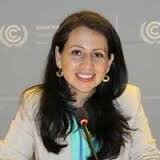 Focal Point - Education, Training and Public Awareness
Focal Point - Education, Training and Public Awareness
United Nations Framework Convention on Climate Change Secretariat
Adriana Valenzuela has extensive experience in working with the UN system, government agencies, non-governmental organizations (NGOs), and youth on education, training and public awareness initiatives, in particular related to education for sustainable development and climate change. In 2013, Ms. Valenzuela joined the United Nations Framework Convention on Climate Change Secretariat in Bonn. She works at the Action for Climate Empowerment Unit, which supports the implementation of the six elements of Article 6 of the UNFCCC – education, training, public awareness, public participation, public access to information and international cooperation. Previously, she was a lead negotiator at the climate change conferences on issues related to education and served as Chair of the G/77 and China. She worked with UNITAR, in the implementation of a UN CC:Learn project collaborating closely with UN international partners (33 multilateral organizations), Parties, NGOs, and other relevant organizations. Ms. Valenzuela has experience in initiating, designing and implementing Article 6 related activities at national and local levels, in particular, preparing a national strategy of Colombia on Article 6 of the Convention and a local strategy on climate change education, training and public awareness in Bogota. One achievement was founding a youth movement in Columbia that worked on sustainability issues, which was then mobilized by young people from 22 countries.
Alexander Leicht
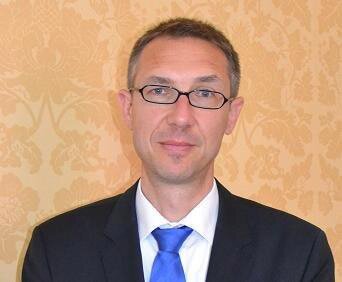 Alexander Leicht is Chief of the Section of Education for Sustainable Development and Global Citizenship Education, UNESCO, Paris. Before joining UNESCO in 2011, he was Head of the German Secretariat for the UN Decade of Education for Sustainable Development at the German Commission for UNESCO in Bonn since 2004, where he also led the organizing team for the preparations of the UNESCO World Conference on Education for Sustainable Development in 2009. He also worked three years as a university teacher in Hungary and the United Kingdom and was originally trained as a teacher, with a graduate degree in literature, at the University of Marburg, Germany, and at the University of Massachusetts at Amherst, USA. He holds a PhD in American Studies from the University of Nottingham, United Kingdom.
Alexander Leicht is Chief of the Section of Education for Sustainable Development and Global Citizenship Education, UNESCO, Paris. Before joining UNESCO in 2011, he was Head of the German Secretariat for the UN Decade of Education for Sustainable Development at the German Commission for UNESCO in Bonn since 2004, where he also led the organizing team for the preparations of the UNESCO World Conference on Education for Sustainable Development in 2009. He also worked three years as a university teacher in Hungary and the United Kingdom and was originally trained as a teacher, with a graduate degree in literature, at the University of Marburg, Germany, and at the University of Massachusetts at Amherst, USA. He holds a PhD in American Studies from the University of Nottingham, United Kingdom.
As Chief of the Section of Education for Sustainable Development and Global Citizenship Education at UNESCO, his current priorities include coordinating the implementation of the Global Action Programme on Education for Sustainable Development (ESD), the follow-up to the UN Decade of ESD, in its five Priority Action Areas policy, education institutions, educators, youth, and local communities (this includes climate change education, education for disaster risk reduction and education to promote sustainable consumption, among others); and supporting countries to strengthen, mainstream and develop Global Citizenship Education (GCED), including peace and human rights education, and the prevention of violent extremism through education.
Daniella Tilbury
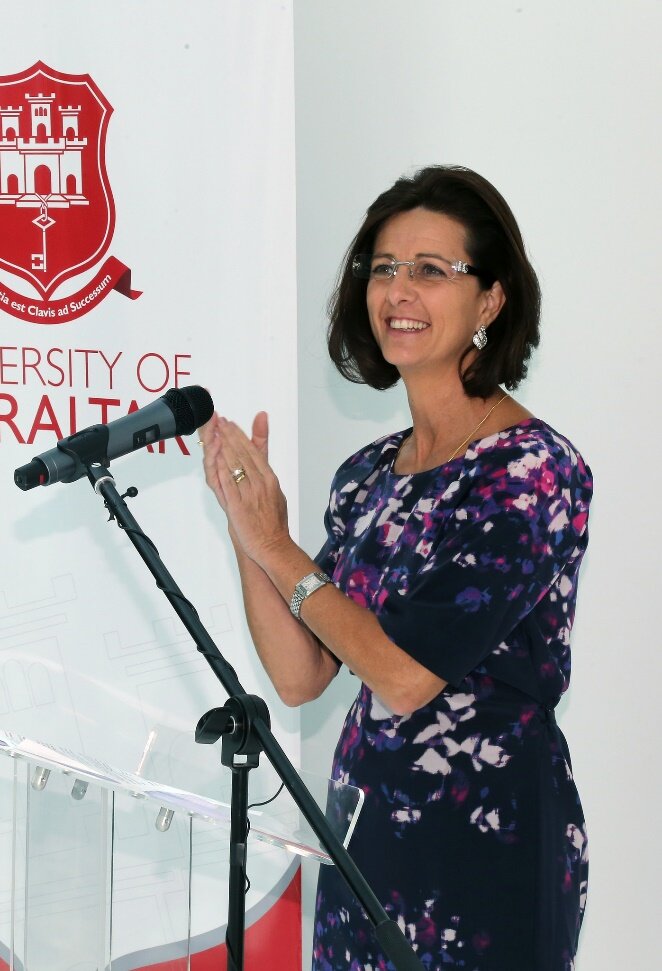 Daniella is Vice-Chancellor and CEO of the University of Gibraltar. She is internationally recognised for her expertise in leadership, learning and institutional change for sustainable development. She is the recipient of several research awards including the Macquarie Innovation Award for Research (Australia 2007) and Marie Curie International Research Fellowship (European Commission 2009). The institutional change efforts she led at the University of Gloucestershire were recognized with a Green Gown Award in 2007, 2011. She was the founder Director of the Australian Research Institute in Education for Sustianability (ARIES).
Daniella is Vice-Chancellor and CEO of the University of Gibraltar. She is internationally recognised for her expertise in leadership, learning and institutional change for sustainable development. She is the recipient of several research awards including the Macquarie Innovation Award for Research (Australia 2007) and Marie Curie International Research Fellowship (European Commission 2009). The institutional change efforts she led at the University of Gloucestershire were recognized with a Green Gown Award in 2007, 2011. She was the founder Director of the Australian Research Institute in Education for Sustianability (ARIES).
Daniella has assessed strategic higher education initiatives for government agencies in Australia, New Zealand, China, Morocco and Europe. Together with Dr Alex Ryan, she led a large HEFCE QAA funded ‘Leadership, Governance and Management’ project on embedding sustainability into quality assurance processes in higher education (2010-12) and a Higher Education Academy study into flexible learning and new pedagogical ideas (2013).
She was awarded a PhD (University of Cambridge, St Catherine’s College) in the early 1990s. She acted as lead evaluator for projects funded by the European Union, United Nations, World Conservation Union (IUCN), World Wide Fund for Nature (WWF), British Council, and several government agencies organizations. She chaired the UNESCO Global Monitoring and Evaluation Expert Group on Education for Sustainable Development (2005-2014). She leads the University Educators for Sustainable Development Project (UE4SD), a project that brings together 53 Universities across Europe, to embed sustainability into teaching and learning.
Fabrice Millet
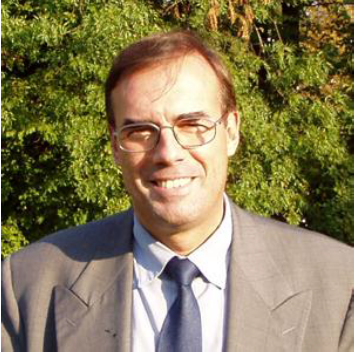
His work focuses on information technology and technological innovations applied to the automation of international trade processes and Customs reform. He has a longstanding involvement in ASYCUDA, playing a leading role in the design and technical development of the third (ASYCUDA++) and fourth (ASYCUDAWorld) generations of the associated software product.
Under his leadership the Programme has promoted trade efficiency through the use of international standards, the development of G2G and G2B solutions for Customs and Other Government Agencies (OGAs). From 2000 to 2010 the Programme has shifted from a north-south cooperation scheme to a south-south model, strongly supporting regional expertise.
Before joining the UNCTAD in 1990, he had worked as an engineer, team leader and consultant for the private sector and international organizations.
Fernardo Galván
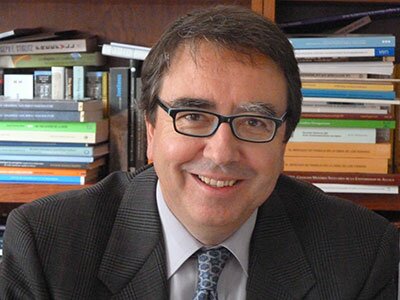 Fernando Galván is Full Professor of English since 1990, and currently Rector/President of the University of Alcalá, Madrid (2010-2018). He has been awarded honorary doctorates from the University of Glasgow (DLitt, 2012), the National Autonomous University of Nicaragua in León (2012) and the National University of Villarrica in Paraguay (2014). He has been Visiting Scholar at the Department of Comparative Literature of Harvard University (1993, 1994), Visiting Fellow of Corpus Christi College (Oxford), and Associate Member of the Faculty of English of the University of Oxford (2009). He is a member of IAUPE (International Association of University Professors of English) since 1994, and was appointed in 2003 Corresponding Fellow of The English Association, in the UK.
Fernando Galván is Full Professor of English since 1990, and currently Rector/President of the University of Alcalá, Madrid (2010-2018). He has been awarded honorary doctorates from the University of Glasgow (DLitt, 2012), the National Autonomous University of Nicaragua in León (2012) and the National University of Villarrica in Paraguay (2014). He has been Visiting Scholar at the Department of Comparative Literature of Harvard University (1993, 1994), Visiting Fellow of Corpus Christi College (Oxford), and Associate Member of the Faculty of English of the University of Oxford (2009). He is a member of IAUPE (International Association of University Professors of English) since 1994, and was appointed in 2003 Corresponding Fellow of The English Association, in the UK.
He has an extensive teaching and research experience, as well as a large publication record. In his capacity as a philologist, he has held important responsibilities at a national and international level: President of the Spanish Association for Anglo-American Studies (AEDEAN: 1996-2002) and President of the European Society for the Study of English (ESSE: 2007-2013). He has also held numerous relevant jobs in university administration for more than 30 years. He also chaired the Conference of Rectors of the Universities of Madrid (CRUMA) in 2013. He is now a member of the Executive Committee of the International Association of University Presidents (IAUP) and President of the Committee for Sustainability of the Conference of Rectors of Spanish Universities (CRUE).
Heila Lotz-Sisitka
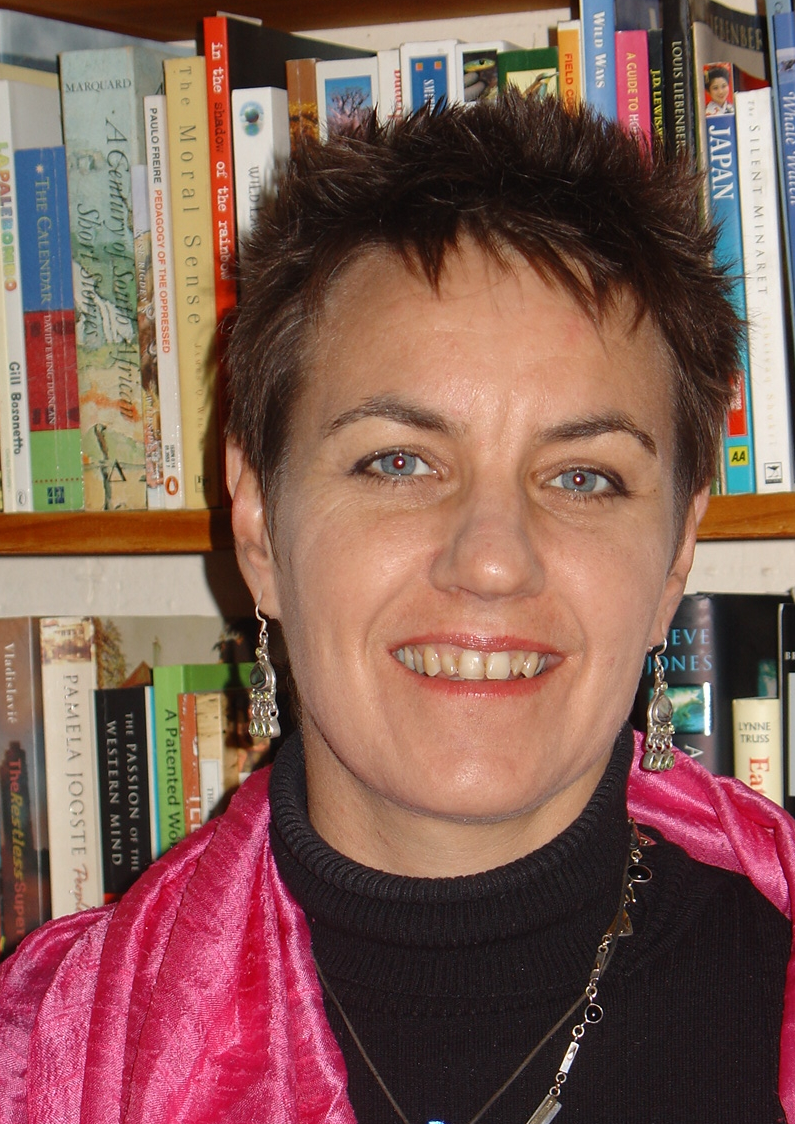 Professor Heila Lotz-Sisitka holds a Tier 1 South African National Research Foundation Chair in Global Change and Social Learning Systems. She serves as Director of the Environmental Learning Research Centre at Rhodes University, South Africa. She has served on the UNESCO International Reference Group for the UN Decade on Education for Sustainable Development, and serves on the international steering committee of the Global Universities Partnership for Environment and Sustainability, a UNEP-led initiative. She is editor of the Southern African Journal of Environmental Education. She recently co-edited a Routledge book on ‘Critical Realism, Environmental Learning and Social-Ecological Change’. Her research interests include transformative learning, education and agency in contexts of risk and vulnerability, participation in education, and critical research methodologies.
Professor Heila Lotz-Sisitka holds a Tier 1 South African National Research Foundation Chair in Global Change and Social Learning Systems. She serves as Director of the Environmental Learning Research Centre at Rhodes University, South Africa. She has served on the UNESCO International Reference Group for the UN Decade on Education for Sustainable Development, and serves on the international steering committee of the Global Universities Partnership for Environment and Sustainability, a UNEP-led initiative. She is editor of the Southern African Journal of Environmental Education. She recently co-edited a Routledge book on ‘Critical Realism, Environmental Learning and Social-Ecological Change’. Her research interests include transformative learning, education and agency in contexts of risk and vulnerability, participation in education, and critical research methodologies.
Nick Foskett
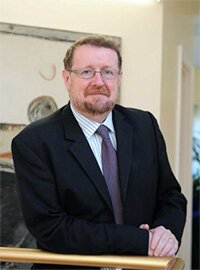 Professor Nick Foskett is Emeritus Professor of Educational Leadership at Keele University in the UK, and a Consultant in Higher Education leadership, policy and strategy. From 2010-2015 he was Vice Chancellor (President) and Chief Executive of Keele University. Prior to his appointment at Keele he had been Dean of the Faculty of Law, Arts and Social Sciences at the University of Southampton. He began his career as a teacher of Geography and Geology in secondary schools and further education, before taking up a senior administrative post at Aston University. He moved to the University of Southampton in 1989 as a Lecturer in Education, where he progressed to Senior Lecturer and then to Professor of Education, before becoming Head of the School of Education in 2000.
Professor Nick Foskett is Emeritus Professor of Educational Leadership at Keele University in the UK, and a Consultant in Higher Education leadership, policy and strategy. From 2010-2015 he was Vice Chancellor (President) and Chief Executive of Keele University. Prior to his appointment at Keele he had been Dean of the Faculty of Law, Arts and Social Sciences at the University of Southampton. He began his career as a teacher of Geography and Geology in secondary schools and further education, before taking up a senior administrative post at Aston University. He moved to the University of Southampton in 1989 as a Lecturer in Education, where he progressed to Senior Lecturer and then to Professor of Education, before becoming Head of the School of Education in 2000.
His academic specialism lies in educational policy, leadership and management, with a particular focus on the interaction of policy and practice. His main research contributions have been in the fields of education markets, student choice, the management of institutional partnerships, and processes of internationalisation, particularly in the 14-19 sector and in universities. He also has a long standing interest in the governance of universities.
He retains his passion for geography and the environment and has a strong engagement with sustainability agendas in education. He has promoted a range of national and international projects and initiatives to move universities to engage with sustainability both as organisations and through their curriculum
Rodrigo Lozano
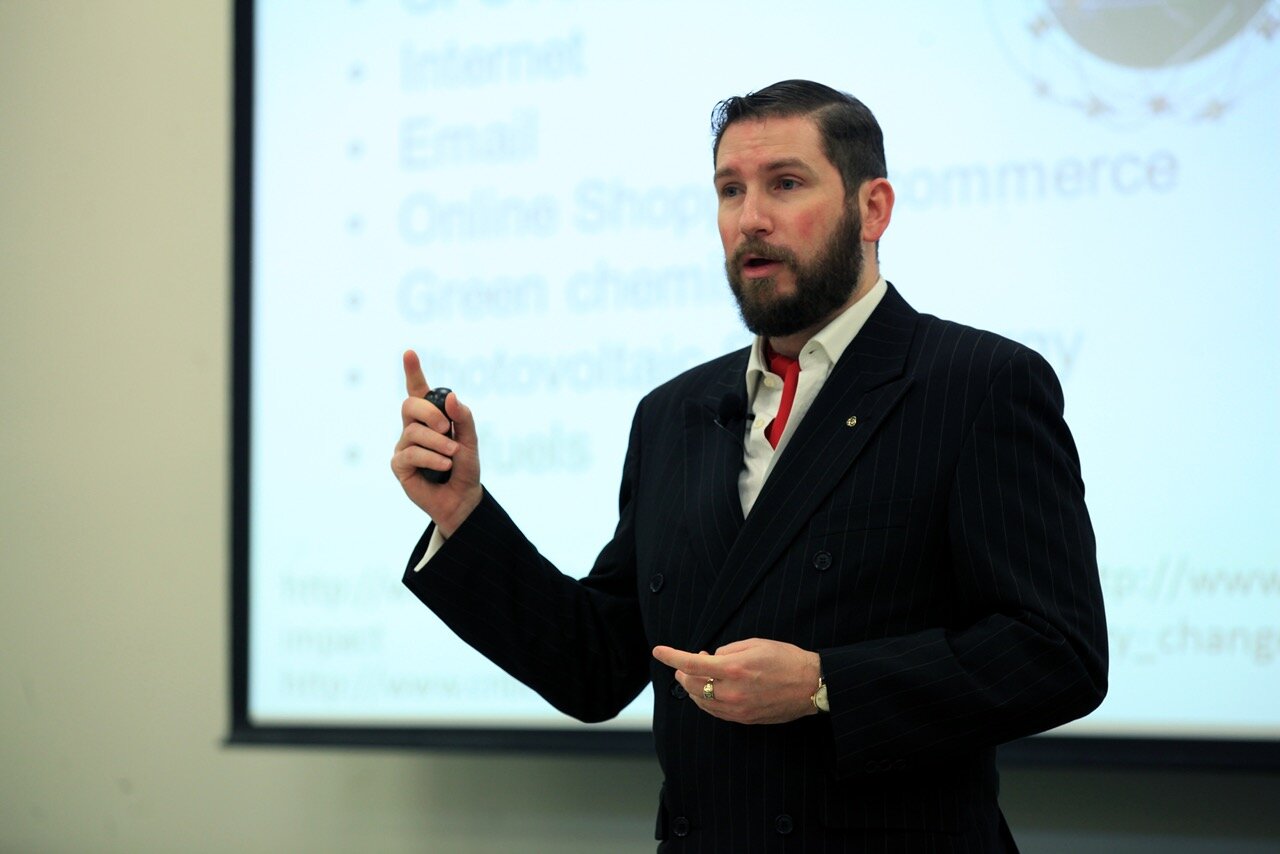 Rodrigo is an Assistant Professor at the Copernicus Institute of Sustainable Development, Utrecht University and from the 1st of January 2016 Editor-in-Chief for the Journal of Cleaner Production (impact factor for 2013: 3.58). He was previously programme leader of the BA Environment and Business and lecturer in Corporate Sustainability at the Sustainability Research Institute, University of Leeds, UK. For more than fifteen years Rodrigo has been working towards Sustainability in NGO's, universities, and corporations. His projects have ranged from chemical leasing, indoor-air quality and energy efficiency, to sustainability assessment and reporting, and to organisational change management. He has developed assessment tools such as the GRaphical Assessment of Sustainability Performance (GRASP), the Sustainability Tool for Assessing UNiversities Curricula Holistically (STAUNCH®) (shortlisted for the Times Higher Education Awards in 2008), and the Graphical Assessment for Sustainability in Universities (GASU™). Rodrigo holds a BSc in Chemical Engineering (graduated with honours) from Monterrey Tec, Mexico; a MSc in Environmental Management and Policy, from the International Institute for Industrial Environmental Economies (IIIEE) at Lund University, Sweden; and a PhD on organizational change management for Corporate Sustainability at Cardiff University, Cardiff, UK. Rodrigo is also the managing director of Organisational Sustainability Ltd. (http://www.org-sustainability.com ).
Rodrigo is an Assistant Professor at the Copernicus Institute of Sustainable Development, Utrecht University and from the 1st of January 2016 Editor-in-Chief for the Journal of Cleaner Production (impact factor for 2013: 3.58). He was previously programme leader of the BA Environment and Business and lecturer in Corporate Sustainability at the Sustainability Research Institute, University of Leeds, UK. For more than fifteen years Rodrigo has been working towards Sustainability in NGO's, universities, and corporations. His projects have ranged from chemical leasing, indoor-air quality and energy efficiency, to sustainability assessment and reporting, and to organisational change management. He has developed assessment tools such as the GRaphical Assessment of Sustainability Performance (GRASP), the Sustainability Tool for Assessing UNiversities Curricula Holistically (STAUNCH®) (shortlisted for the Times Higher Education Awards in 2008), and the Graphical Assessment for Sustainability in Universities (GASU™). Rodrigo holds a BSc in Chemical Engineering (graduated with honours) from Monterrey Tec, Mexico; a MSc in Environmental Management and Policy, from the International Institute for Industrial Environmental Economies (IIIEE) at Lund University, Sweden; and a PhD on organizational change management for Corporate Sustainability at Cardiff University, Cardiff, UK. Rodrigo is also the managing director of Organisational Sustainability Ltd. (http://www.org-sustainability.com ).
UE4SD kicks off with regional meetings in Spain, Czech Republic, Germany and UK (February-March 2014)
 From February to March, four project regional meetings were organised in each regional hub and gathered partners from each region. The purpose of these meetings was to share management and administration issues as well as discuss the first phase of the project which involves each member country mapping its existing professional development opportunities for university educators. Project partners will map national and institutional initiatives, schemes and activities in this area. This data will inform four regional reports and one state of the art report which will be shared at the project annual meeting and COPERNICUS Alliance Conference which will take place from 2-3 October 2014 in Prague, Czech Republic.
From February to March, four project regional meetings were organised in each regional hub and gathered partners from each region. The purpose of these meetings was to share management and administration issues as well as discuss the first phase of the project which involves each member country mapping its existing professional development opportunities for university educators. Project partners will map national and institutional initiatives, schemes and activities in this area. This data will inform four regional reports and one state of the art report which will be shared at the project annual meeting and COPERNICUS Alliance Conference which will take place from 2-3 October 2014 in Prague, Czech Republic.







